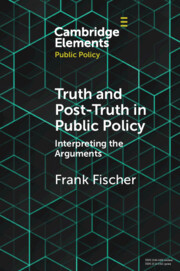Element contents
Truth and Post-Truth in Public Policy
Published online by Cambridge University Press: 18 November 2021
Summary
Keywords
- Type
- Element
- Information
- Series: Elements in Public PolicyOnline ISBN: 9781108854344Publisher: Cambridge University PressPrint publication: 09 December 2021

